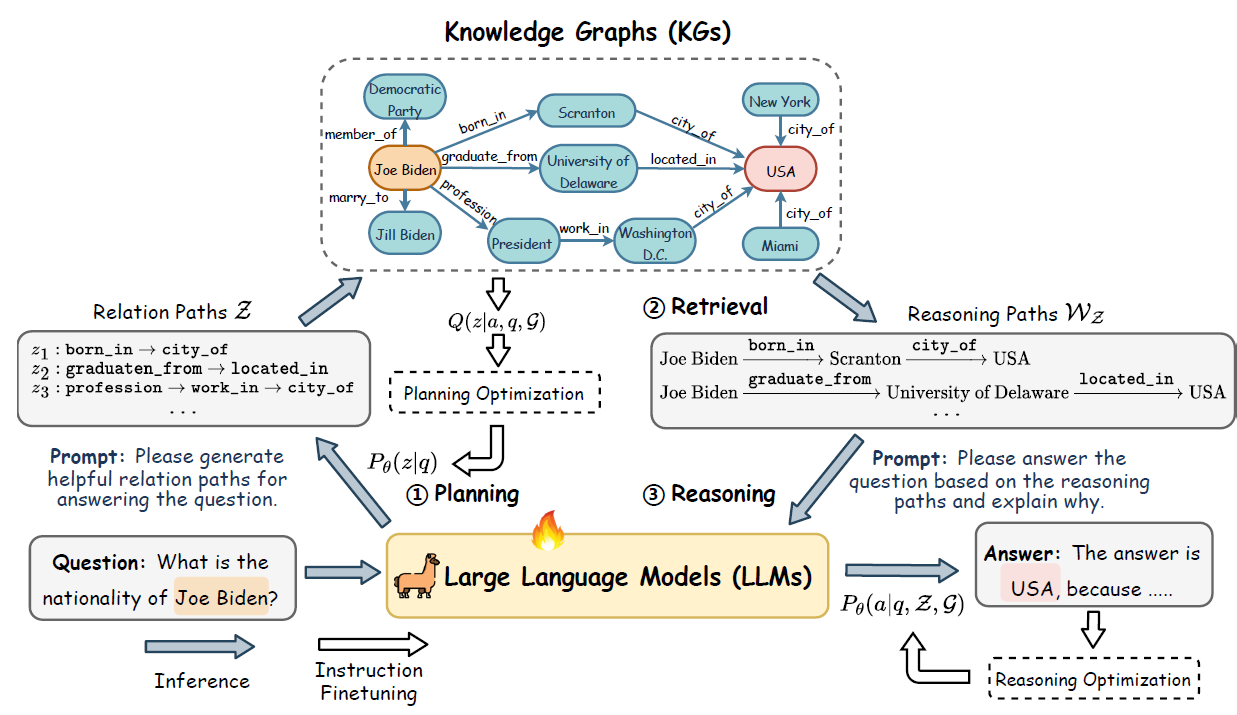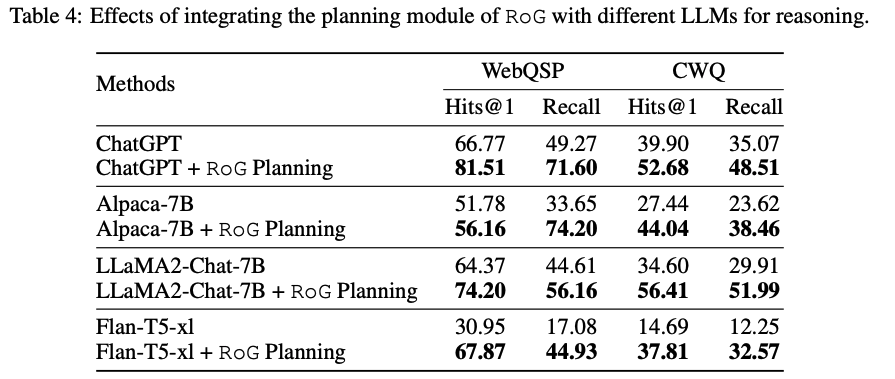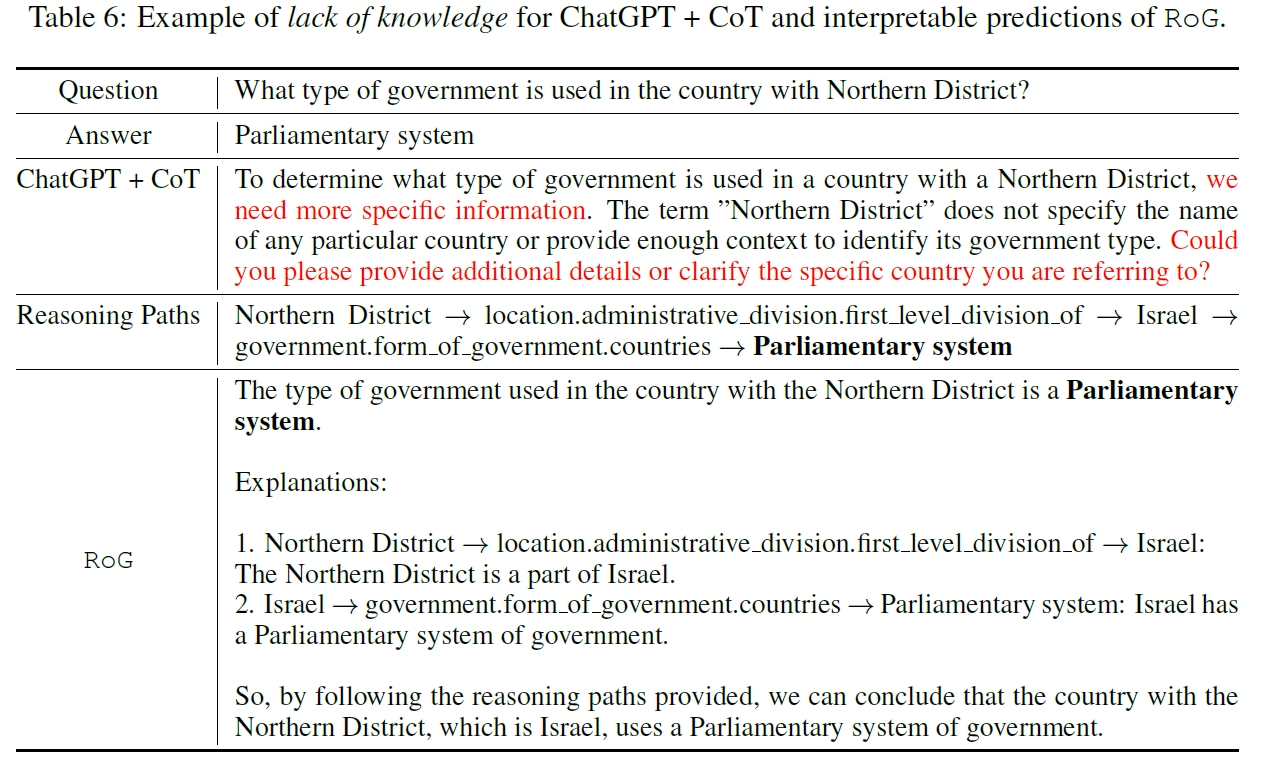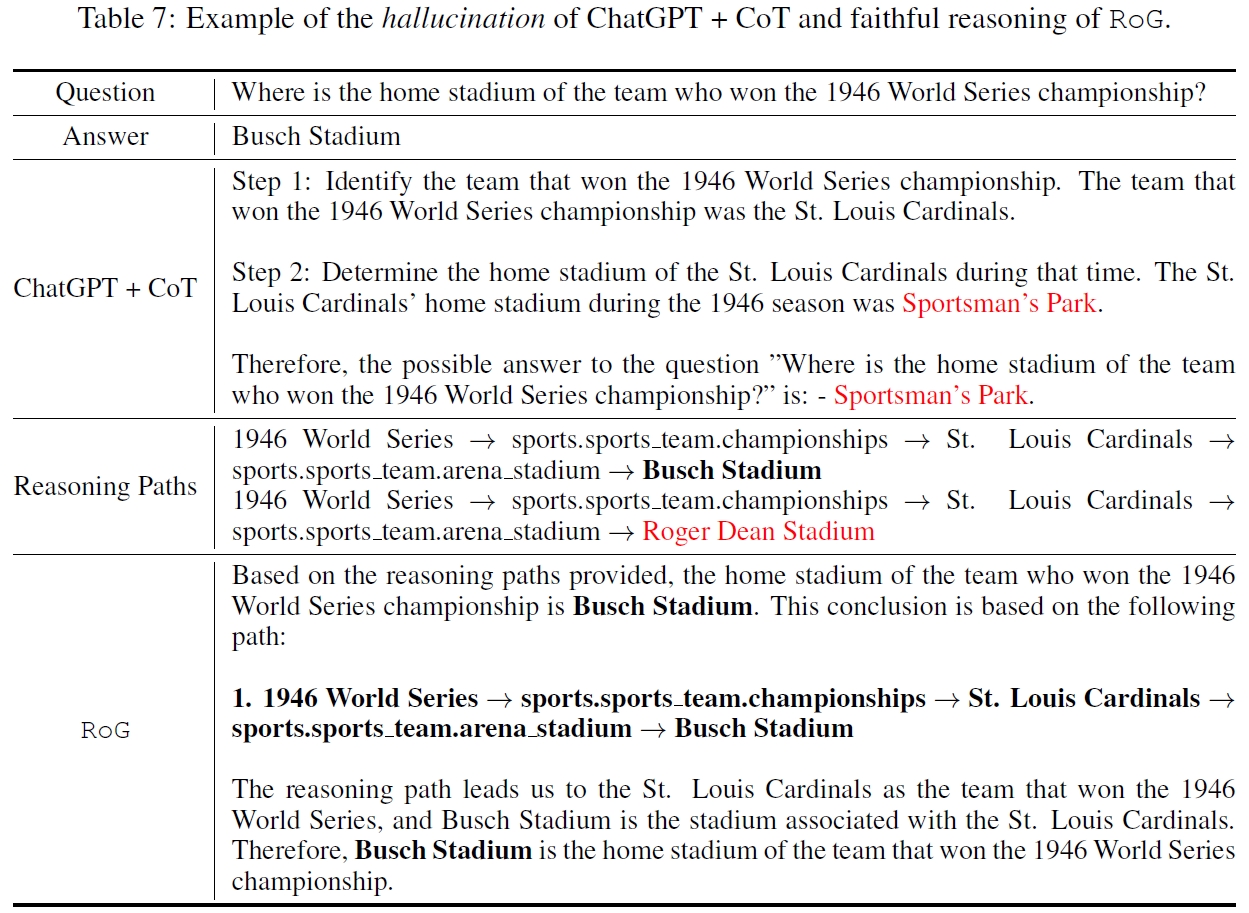Official Implementation of "Reasoning on Graphs: Faithful and Interpretable Large Language Model Reasoning".
Reasoning on graphs (RoG) synergizes LLMs with KGs to enable faithful and interpretable reasoning. We present a planning-retrieval-reasoning framework, where RoG first generates relation paths grounded by KGs as faithful plans. These plans are then used to retrieve valid reasoning paths from the KGs for LLMs to conduct faithful reasoning and generate interpretable results.
pip install -r requirements.txt
Our code will automatically download the model weight from the huggingface.
You can find the pre-trained weights here.
Our code will automatically download the data from the huggingface.
Subgraph Extraction
We extract the subgraphs from the Freebase following previous studies. The code can be found here.
Requirements: Any GPU with at least 12GB memory.
Run: ./scripts/planning.sh
python src/qa_prediction/gen_rule_path.py \
--model_name RoG \
--model_path rmanluo/RoG \
-d {RoG-webqsp,RoG-cwq} \
--split test \
--n_beam 3Generated rules will be saved at: results/gen_rule_path/{dataset}/{model_name}/{split}
Run: ./scripts/rog-reasoning.sh
python src/qa_prediction/predict_answer.py \
--model_name RoG \
--model_path rmanluo/RoG \
-d {RoG-webqsp,RoG-cwq} \
--prompt_path prompts/llama2_predict.txt \
--add_rul \
--rule_path {rule_path} \Answers will be saved at: results/KGQA/{dataset}/{model_name}/{split}
Note: you need to set your openai key at
.envto use ChatGPT.
Run: ./scripts/plug-and-play.sh
python src/qa_prediction/predict_answer.py \
--model_name {gpt-3.5-turbo,alpaca,llama2-chat-hf,flan-t5} \
-d {RoG-webqsp,RoG-cwq} \
--prompt_path {prompt_path} \
--add_rule \
--rule_path {rule_path}Run: python scripts/interpretable_example.py
from transformers import pipeline, AutoTokenizer
import torch
MODEL_PATH_OR_NAME="rmanluo/RoG"
tokenizer = AutoTokenizer.from_pretrained(MODEL_PATH_OR_NAME, use_fast=False)
model = pipeline("text-generation", model=MODEL_PATH_OR_NAME, tokenizer=tokenizer, device_map="auto", torch_dtype=torch.float16)
print("====EXAMPLE 1: ====")
INPUT_TEXT_1 = """Based on the reasoning paths, please answer the given question and explain why
Reasoning Paths:
Northern District -> location.administrative_division.first_level_division_of -> Israel -> government.form_of_government.countries -> Parliamentary system
Question:
What type of government is used in the country with Northern District?"""
outputs = model(INPUT_TEXT_1, return_full_text=False)
print(outputs[0]['generated_text'])You can download the processed datasets from RoG_train_data.tar.tz. Unzip the files and put them under datasets/ folder.
Process datasets
- Build question to relation path pairs.
python src/align_kg/build_align_qa_dataset.py -d {RoG-webqsp,RoG-cwq} --split {train,validation,test}- Build joint-training datasets.
python src/joint_training/preprocess_align.py
python src/joint_training/preprocess_qa.py- Build interpretable examples.
python src/joint_training/generate_explanation_results.py2 A100-80GB GPUs are required for training RoG.
Run: ./scripts/train.sh
If you found this repo helpful, please help us by citing this paper:
@inproceedings{luo2024rog,
title={Reasoning on Graphs: Faithful and Interpretable Large Language Model Reasoning},
author={Luo, Linhao and Li, Yuan-Fang and Haffari, Gholamreza and Pan, Shirui},
booktitle={International Conference on Learning Representations},
year={2024}
}




